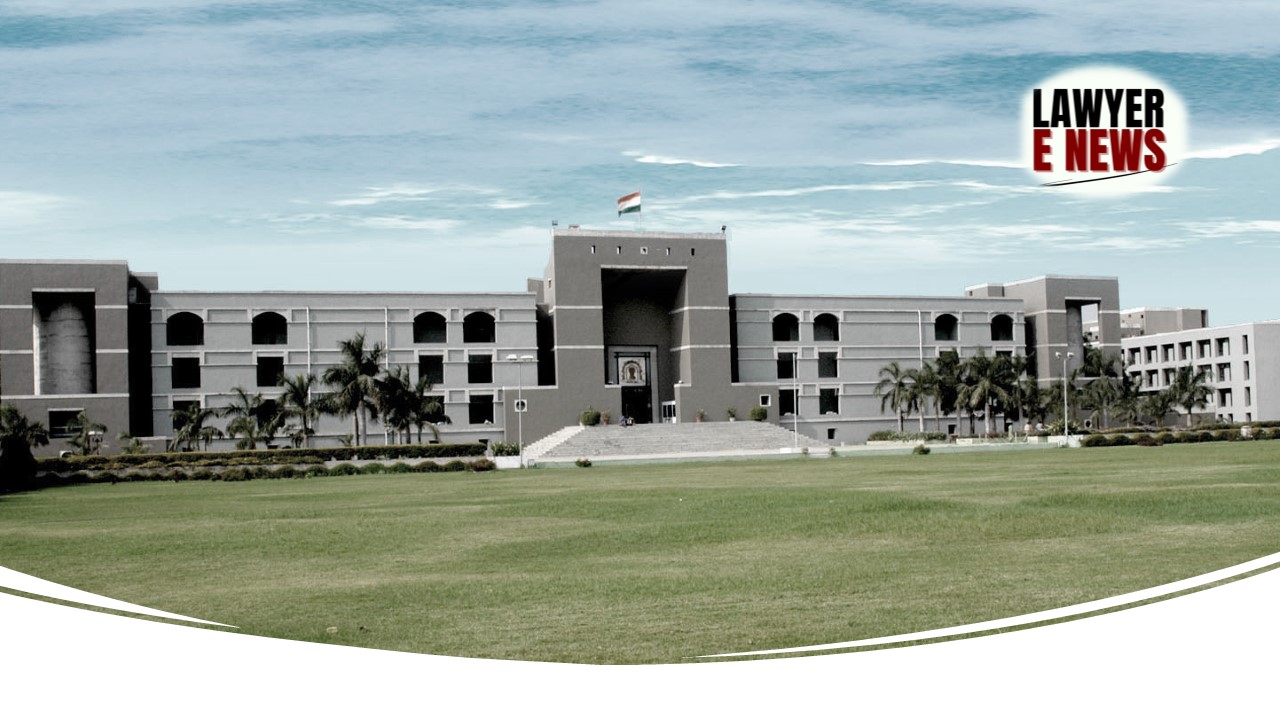-
by Admin
15 February 2026 5:01 PM



The Gujarat High Court, in its judgment dated December 2, 2024, dismissed a petition challenging the validity of notices issued under Section 153C of the Income Tax Act, 1961. The petitioner, Bhavin Kishorebhai Zinzuwadia, contested the notices for Assessment Years (AYs) 2009-10 to 2014-15, claiming they were time-barred, jurisdictionally flawed due to invalid satisfaction notes, and unsupported by incriminating material. The Court, however, upheld the legality of the notices, affirming their compliance with the extended ten-year limitation period introduced by the Finance Act, 2017, and validating the sufficiency of the satisfaction recorded by the Assessing Officers (AOs).
Justice Bhargav D. Karia, writing for the bench, remarked:
"The extended period of ten years under Section 153A is applicable when the escaped income exceeds ₹50 lakh. The Assessing Officer's satisfaction dated October 23, 2019, confirmed that the undisclosed income exceeded ₹4.8 crore, thereby validating the notices for AYs 2009-10 to 2014-15."
The petitioner argued that the satisfaction note recorded by the AO of the searched person on March 31, 2018, and by the jurisdictional AO on October 23, 2019, were delayed and thus invalid. Rejecting this claim, the Court noted that the satisfaction by the AO of the searched person coincided with the conclusion of assessment proceedings for the searched entity. Quoting from the precedent set in CCIT v. Calcutta Knitwears, the Court observed:
"The satisfaction note could be prepared at any of the following stages: at the time of, or along with, the initiation of proceedings against the searched person; in the course of the assessment proceedings under Section 153A; or immediately after the assessment proceedings are completed."
The Court also referred to Principal CIT v. Karina Airlines International Ltd., which stated:
"The block period of ten AYs applies when escaped income exceeds ₹50 lakh, extending the scope of assessments to include four additional years beyond the initial six-year period under Section 153A."
Addressing the petitioner’s claim that no incriminating material supported the notices for some AYs, the Court held that such objections were premature and must be addressed during assessment proceedings or through statutory remedies. It quoted Principal CIT v. Abhisar Buildwell P. Ltd. to emphasize:
"A satisfaction note is sufficient if it refers to incriminating material that has a bearing on the determination of total income for the relevant AYs. The adequacy of such material is to be evaluated during assessment, not at the stage of notice issuance."
The petitioner further argued that the notices violated time limits prescribed under Section 153C. Rejecting this claim, the Court referred to SSP Aviation Ltd. v. DCIT, stating:
"In cases where the jurisdictional AO is common for the searched and non-searched persons, the commencement point is the date when the AO records satisfaction with respect to the non-searched entity. This timeline ensures fairness without causing unreasonable delay."
The bench also addressed the petitioner’s invocation of writ jurisdiction, emphasizing the availability of alternative remedies. Referring to CIT v. Vijay N. Chandrani, the Court held:
"The petitioner must exhaust statutory remedies by raising objections during assessment and, if necessary, by appealing against the assessment order. Premature invocation of writ jurisdiction is unwarranted at this stage."
Concluding its decision, the Court ruled that the notices were validly issued within the extended ten-year limitation period and that the recorded satisfaction complied with legal requirements. It observed:
"The ten-year period, as clarified by the Finance Act, 2017, applies in this case. The notices issued from AYs 2009-10 to 2014-15 are not time-barred and stand valid. Issues of incriminating material and specific satisfaction may be raised during assessment proceedings."
Consequently, the petition was dismissed, and the rule discharged. The judgment underscores the importance of adhering to statutory timelines and addressing procedural objections within the framework of the Income Tax Act.
Date of Decision: December 2, 2024
